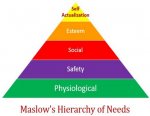- Joined
- Dec 13, 2015
- Messages
- 9,594
- Reaction score
- 2,072
- Location
- France
- Gender
- Male
- Political Leaning
- Centrist
This thread's title comes from the "Lexington" report in The Economist this week, which I excerpt:
For the Rust Belt or the Dust Belt (farming), these are dreary days for both.
The US slapped tarriffs on tire-imports, but for a good reason. This country rolls on rubber tires, and to allow a foreign country (especially China) to control in any way the supply is simply out of the question.
But what about the rest of manufacturing? That's the 64 billion dollar question!
Should Uncle Sam start slapping tariffs on each and every industry that is threatened from cheaper imports? Where would that tactic lead us ... ?
Even workers protected by trade tariffs feel angry and neglected ...
AMERICA feels sick at heart this year. Can conventional politics cure that malaise, or will voters turn to those peddling radical remedies, from trade wars to high border walls? That question weighs heavily in midwestern states, where factories propelled millions of post-war workers into middle-class prosperity. Though rustbelt states like Ohio, Michigan and Illinois helped Barack Obama win the White House, this year many midwestern voters seem drawn to fiery candidates who offer the sharpest contrast with the president’s cool, headmasterly style: from Donald Trump on the right to Senator Bernie Sanders on the left.
A day before the Ohio primary Lexington traveled to Findlay, a frayed-at-the-edges town of 41,000 people which is home to one of Ohio’s larger tyre plants. The smell of cooking rubber hangs over its streets. Twice under Mr Obama, anti-dumping tariffs of up to 88% have been slapped on imported Chinese tyres at the prodding of the United Steelworkers union (USW), to protect jobs at plants including the Cooper Tire & Rubber factory in Findlay.
Mr Obama cited the tariffs in his state-of-the-union message in 2012, declaring: “Over a thousand Americans are working today because we stopped a surge in Chinese tyres.”
Several workers accused Democrats of scorning traditional values. Jerry Eatherton said that tariffs on Chinese tyres have “helped a ton”, and voted for Mr Obama’s re-election in 2012. But this year he will support “anybody except Hillary”. Mr Eatherton is a hunter who feeds his family with venison and other game. Mrs Clinton, he avers, would like to take away the gun with which he puts “food on my table”. Several workers were for Mr Sanders (who on primary night won Hancock County, of which Findlay is the seat). A number declared Mr Trump “scary” and backed Governor John Kasich of Ohio, a Republican who won his home-state primary (Mr Kasich’s line on trade is Clintonesque in its nuances).
Rod Nelson, president of the Cooper plant’s union branch, Local 207L of the United Steelworkers, and that was in the “realist” belief that she will be the Democratic nominee. At Lexington’s request, Mr Nelson gathered ten Cooper workers for a group interview. Asked to sum up Mr Obama, the men replied variously that he was a good man, a disappointment, a “great speech-giver”, a victim of Republican obstruction in Congress and a man who had failed to rein in the super-rich and their influence over politics. The president was praised for bailing out the car sector and other industries soon after taking office. He was thanked for tariffs on China, but his support for the TPP caused baffled dismay. Mr Nelson ventured that perhaps the president is using trade as “a diplomatic tool” to win allies.
Above all, tariffs on Chinese imports were described as too late to save thousands of jobs in American tyre factories. The men in the union hall want a new approach to capitalism, in which foreign trade partners must pay living wages and heed global environmental norms.
For the Rust Belt or the Dust Belt (farming), these are dreary days for both.
The US slapped tarriffs on tire-imports, but for a good reason. This country rolls on rubber tires, and to allow a foreign country (especially China) to control in any way the supply is simply out of the question.
But what about the rest of manufacturing? That's the 64 billion dollar question!
Should Uncle Sam start slapping tariffs on each and every industry that is threatened from cheaper imports? Where would that tactic lead us ... ?
Last edited:

